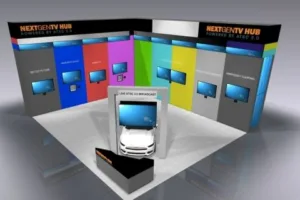In a recent development affecting the expansion of data services and NextGen TV, the Federal Communications Commission (FCC) has dismissed Microsoft’s petition to reconsider a 2021 ruling on distributed television systems (DTS). According to TV Tech, this decision follows Microsoft’s withdrawal of its request, stating that it is “no longer pursuing or advocating for the matters raised in the Petition.” Microsoft’s decision to withdraw its petition was confirmed in an August 5, 2024, FCC report. The FCC granted the request for withdrawal and dismissed the petition without prejudice.
In 2021, the FCC made a significant ruling that involved modifications to its technical rules to promote the use of DTS by broadcast television stations. This decision was part of the FCC’s initiative to facilitate the deployment ATSC 3.0. The modifications were designed to enable broadcasters to use DTS technology more effectively to improve service coverage by allowing television stations to fill coverage gaps within their service areas supporting the accelerated rollout of NextGen TV services.
Microsoft’s initial petition, filed in March 2021, argued that the ruling could negatively impact its Airband Initiative, which aims to use TV white spaces to provide broadband services in rural areas. Microsoft was concerned that the order would exacerbate challenges in deploying TV white spaces technology, potentially hindering its efforts to expand broadband access. White Space refers to the unused radio frequencies in the television broadcast spectrum. These frequencies, often found between the frequencies used by active television channels, were initially allocated as buffer zones to prevent interference between TV signals.
Airband is an initiative by Microsoft aimed at expanding broadband access to rural and underserved areas by leveraging TV white space technology. The Airband Initiative focuses on using these unlicensed frequencies to provide affordable internet connectivity in areas where traditional infrastructure, such as fiber optics or cable, is not economically feasible.
The NAB, however, strongly opposed Microsoft’s petition. NAB Deputy General Counsel Patrick McFadden criticized the Airband Initiative, highlighting the minimal success of white spaces technology and questioning its impact. McFadden argued that Microsoft’s efforts to secure regulatory changes were unfounded, considering the declining use of white spaces devices in the United States.
In the face of this opposition, Microsoft’s decision to withdraw its petition was confirmed in an August 5, 2024, FCC report. The FCC granted the request for withdrawal and dismissed the petition without prejudice. The FCC further stated that, barring any new petitions for reconsideration or judicial review, the docket concerning this matter would be closed.

